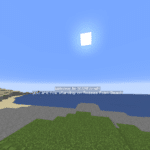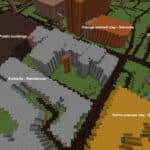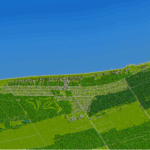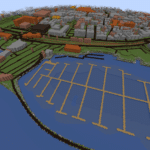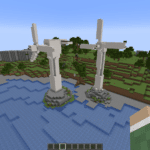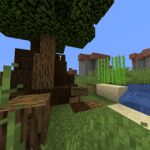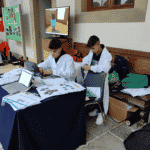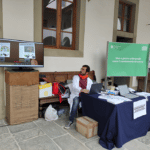The younger generation is an essential group to reach when engaging a local community in designing more resilient cities, as is the core of the SCORE project. There is an opportunity to include young people in the process. They have ideas for what they want their neighbourhoods to look like in the future. Unfortunately, adults and decision-makers have traditionally not been great at including them in the planning and design process.
Since it launched in 2011, Minecraft has been the best-selling computer game in history. Our SCORE team at UCD has been developing the use of Minecraft to engage young people with climate change and how their local area can adapt to it using Ecosystem-Based Approaches. We use real world data to create custom Minecraft worlds. Everything from buildings to roads, trees and parks can be translated into the game.
Minecraft workshops
The SCORE’s Minecraft workshops focus on giving kids a chance to use their skills in the game to redesign where they live in response to a variety of topics: active transport, park design, urban greening, ecosystem restoration, etc. Using the game allows participants to use their imaginations to address design problems but also lets them work in high levels of detail.
We have so far piloted these workshops with the SCORE’s Coastal City Living Labs (CCLL) in Massa (Italy), Dun Laoghaire and Sligo (Ireland). They each present a variety of different environmental challenges and an amazing range of responses from local young people:
- In Sligo, the SCORE team were shown an early model of the area around Rosses Point Beach and were given the chance to try the game
- UCD students and members of the public in Dun Laoghaire have worked on ways to adapt to coastal flooding and erosion along critical infrastructure
- Young people in Massa also worked on designing EBAs around the Port of Pisa to create coastal defences such as seagrass restoration, building rain gardens.
In the coming months, we will be debuting our workshops in more CCLLs where locals can use the game to tackle the challenges of climate change and demonstrate how they think their cities should adapt.

